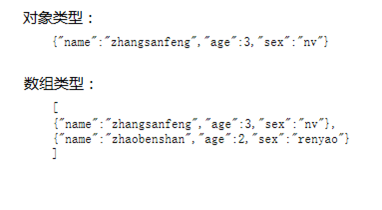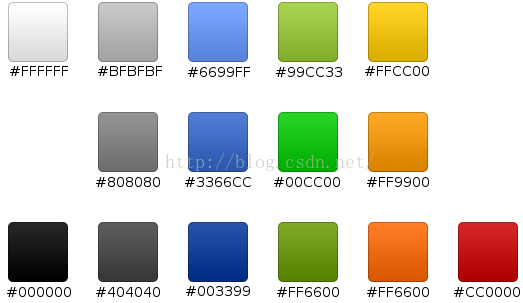編輯:關於Android編程
Android應用開發中,會經常要提交數據到服務器和從服務器得到數據,本文主要是給出了利用http協議采用HttpClient方式向服務器提交數據的方法。
代碼比較簡單,這裡不去過多的闡述,直接看代碼。
/**
* @author Dylan
* 本類封裝了Android中向web服務器提交數據的兩種方式四種方法
*/
public class SubmitDataByHttpClientAndOrdinaryWay {
/**
* 使用get請求以普通方式提交數據
* @param map 傳遞進來的數據,以map的形式進行了封裝
* @param path 要求服務器servlet的地址
* @return 返回的boolean類型的參數
* @throws Exception
*/
public Boolean submitDataByDoGet(Map<String, String> map, String path) throws Exception {
// 拼湊出請求地址
StringBuilder sb = new StringBuilder(path);
sb.append("?");
for (Map.Entry<String, String> entry : map.entrySet()) {
sb.append(entry.getKey()).append("=").append(entry.getValue());
sb.append("&");
}
sb.deleteCharAt(sb.length() - 1);
String str = sb.toString();
System.out.println(str);
URL Url = new URL(str);
HttpURLConnection HttpConn = (HttpURLConnection) Url.openConnection();
HttpConn.setRequestMethod("GET");
HttpConn.setReadTimeout(5000);
// GET方式的請求不用設置什麼DoOutPut()之類的嗎?
if (HttpConn.getResponseCode() == HttpURLConnection.HTTP_OK) {
return true;
}
return false;
}
/**
* 普通方式的DoPost請求提交數據
* @param map 傳遞進來的數據,以map的形式進行了封裝
* @param path 要求服務器servlet的地址
* @return 返回的boolean類型的參數
* @throws Exception
*/
public Boolean submitDataByDoPost(Map<String, String> map, String path) throws Exception {
// 注意Post地址中是不帶參數的,所以newURL的時候要注意不能加上後面的參數
URL Url = new URL(path);
// Post方式提交的時候參數和URL是分開提交的,參數形式是這樣子的:name=y&age=6
StringBuilder sb = new StringBuilder();
// sb.append("?");
for (Map.Entry<String, String> entry : map.entrySet()) {
sb.append(entry.getKey()).append("=").append(entry.getValue());
sb.append("&");
}
sb.deleteCharAt(sb.length() - 1);
String str = sb.toString();
HttpURLConnection HttpConn = (HttpURLConnection) Url.openConnection();
HttpConn.setRequestMethod("POST");
HttpConn.setReadTimeout(5000);
HttpConn.setDoOutput(true);
HttpConn.setRequestProperty("Content-Type", "application/x-www-form-urlencoded");
HttpConn.setRequestProperty("Content-Length", String.valueOf(str.getBytes().length));
OutputStream os = HttpConn.getOutputStream();
os.write(str.getBytes());
if (HttpConn.getResponseCode() == HttpURLConnection.HTTP_OK) {
return true;
}
return false;
}
/**
* 以HttpClient的DoGet方式向服務器發送請數據
* @param map 傳遞進來的數據,以map的形式進行了封裝
* @param path 要求服務器servlet的地址
* @return 返回的boolean類型的參數
* @throws Exception
*/
public Boolean submitDataByHttpClientDoGet(Map<String, String> map, String path) throws Exception {
HttpClient hc = new DefaultHttpClient();
// 請求路徑
StringBuilder sb = new StringBuilder(path);
sb.append("?");
for (Map.Entry<String, String> entry : map.entrySet()) {
sb.append(entry.getKey()).append("=").append(entry.getValue());
sb.append("&");
}
sb.deleteCharAt(sb.length() - 1);
String str = sb.toString();
System.out.println(str);
HttpGet request = new HttpGet(sb.toString());
HttpResponse response = hc.execute(request);
if (response.getStatusLine().getStatusCode() == HttpURLConnection.HTTP_OK) {
return true;
}
return false;
}
/**
* 以HttpClient的DoPost方式提交數據到服務器
* @param map 傳遞進來的數據,以map的形式進行了封裝
* @param path 要求服務器servlet的地址
* @return 返回的boolean類型的參數
* @throws Exception
*/
public Boolean submintDataByHttpClientDoPost(Map<String, String> map, String path) throws Exception {
// 1. 獲得一個相當於浏覽器對象HttpClient,使用這個接口的實現類來創建對象,DefaultHttpClient
HttpClient hc = new DefaultHttpClient();
// DoPost方式請求的時候設置請求,關鍵是路徑
HttpPost request = new HttpPost(path);
// 2. 為請求設置請求參數,也即是將要上傳到web服務器上的參數
List<NameValuePair> parameters = new ArrayList<NameValuePair>();
for (Map.Entry<String, String> entry : map.entrySet()) {
NameValuePair nameValuePairs = new BasicNameValuePair(entry.getKey(), entry.getValue());
parameters.add(nameValuePairs);
}
// 請求實體HttpEntity也是一個接口,我們用它的實現類UrlEncodedFormEntity來創建對象,注意後面一個String類型的參數是用來指定編碼的
HttpEntity entity = new UrlEncodedFormEntity(parameters, "UTF-8");
request.setEntity(entity);
// 3. 執行請求
HttpResponse response = hc.execute(request);
// 4. 通過返回碼來判斷請求成功與否
if (response.getStatusLine().getStatusCode() == HttpURLConnection.HTTP_OK) {
return true;
}
return false;
}
}
以上就是本文的全部內容,希望對大家的學習有所幫助,也希望大家多多支持本站。
 JSON解析和XML解析區別對比
JSON解析和XML解析區別對比
JSON解析和XML解析是較為普遍的兩種解析方式,其中JSON解析的市場分額更大。本文系統的分析兩種解析方式的區別,為更好地處理數據作准備。由於目前階段主要是做移動開發,
 Android actionbar 搜索框
Android actionbar 搜索框
就是實現在頂部這樣的搜索框。 一、這個搜索框是actionbar上的menu上的一個item.叫SearchView.我們可以先在menu選項裡定義好:
 Android通過get,post方式體訪問http服務器
Android通過get,post方式體訪問http服務器
RT..我之前感覺Android網絡通信很神奇,Magic...最近學習了網絡知識,現在來總結一下怎麼做 好了,就拿例子來說明原理. 說下這個Demo的用處: 1.用戶可
 Android 開發中顏色資源使用詳細介紹
Android 開發中顏色資源使用詳細介紹
前言在Android開發中,顏色資源分兩種:一種是自定義顏色,一種是使用系統給我們自帶的顏色自定義顏色Android中顏色值的定義是由透明度alpha和RGB(紅綠藍)三